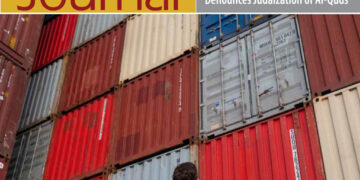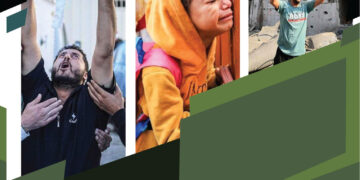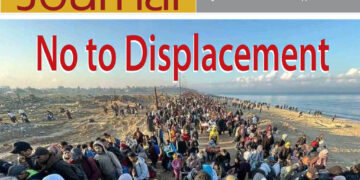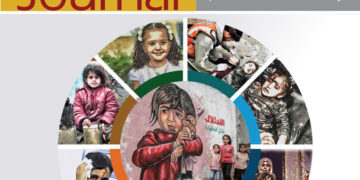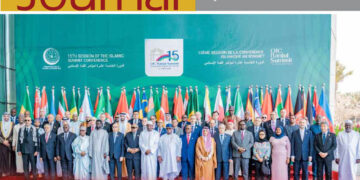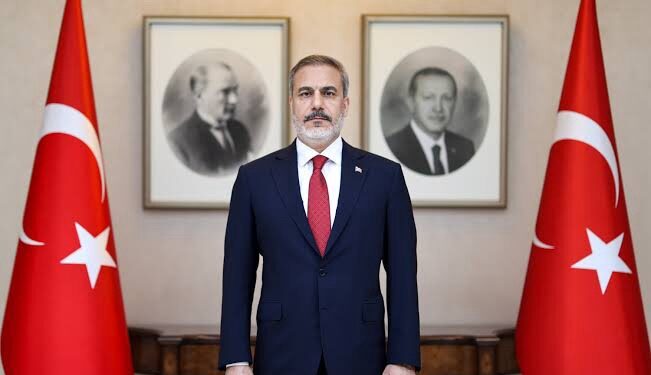*Disclaimer: The text-to-speech audio is generated by AI. OIC is not responsible for any inaccuracies resulting from automated translation.
An article by H.E. Mr. Hakan Fidan, Minister of Foreign Affairs of the Republic of Türkiye, to be published in the 59th edition of the OIC Journal.
The world is passing through a period of profound transformation, marked by widening geopolitical rifts, deepening inequalities, and a growing disconnect between global governance institutions and political realities. Multilateralism -the bedrock of international cooperation- is under immense strain, often challenged by systemic crises that transcend borders such as armed conflicts, climate change, irregular migration, economic competition, and the emerging and disruptive technologies. At the same time, rising intolerance, identity-based polarization, and the erosion of international law have compounded the sense of global instability, thus diminished the trust on the legitimacy of existing frameworks.
This fragmentation is felt across the Muslim World as well. Protracted crises in Palestine, Syria, Yemen, Sudan and Afghanistan continue to devastate communities and expose the limits of international diplomacy in delivering justice and sustainable peace. Equally troubling is the rising wave of Islamophobia, hate speech, and discrimination targeting Muslim minorities in various regions, particularly in non-OIC countries.
Against this backdrop, Türkiye believes that revitalizing multilateral cooperation is imperative. In the face of uncertainty, the Muslim world must strengthen its own mechanisms of solidarity and coordination to confront shared challenges and, protect and advance the collective interests of the Ummah.
The Organization of Islamic Cooperation (OIC), as the principal collective voice of the Muslim world, holds a distinctive position within the international system. As the second-largest intergovernmental organization after the United Nations, the OIC plays a vital role in addressing the political, social, and humanitarian concerns of its 57 Member States. One of its core missions has been to safeguard the rights and freedoms of Muslim communities across the globe, ensuring that their dignity and fundamental rights are protected in accordance with international norms.
In this period when even the UN and other international organisations cannot respond to the current challenges, the benefits that OIC can provide are larger and more significant.
The OIC functions as a crucial mechanism for policy coordination, dialogue, and consensus-building within the Islamic world. In an era marked by uncertainty and fragmentation, the organization’s potential to serve as a stabilizing force -anchored in a shared religious and cultural identity- remains significant. Representing a quarter of the world’s population and endowed with vast natural resources, including 65 percent of global crude oil and around 60 percent of natural gas reserves, the OIC possesses both the moral authority and strategic capacity to influence global outcomes. Furthermore, OIC Member States account for 14.5 percent of global production, 10.5 percent of global exports, and 9.7 percent of foreign direct investment (FDI) inflow. The increase of the intra-OIC trade share in the total foreign trade of OIC members from 19.16 percent in 2023 to 20.36 percent in 2024 is a positive trend for a more economically integrated Organization. Yet, all these data indicate that now more than ever, an effective and unified OIC is essential -one that is capable of defending and promoting the collective interests of the Islamic world on the international stage.
Since its inception, the OIC endorsed the right cause of Palestinians as its raison d’être, and became instrumental to raise their voice at international fora. The latest initiative in this regard is the OIC-AL Gaza Contact Group established in November 2023. Having Türkiye as an active member, the group plays a significant role incontacting key actors to recognize Palestine as a sovereign independent state in order to strengthen the vision of two-state solution to the deep-rooted problem. We are glad to see these efforts bore fruit and hence nine additional states recognized Palestine up to June 2025.
During our Chairmanship we will continue to exert intensive efforts to end Israel’s genocide in Gaza. We will continue to work towards the establishment of a ceasefire, ensuring the uninterrupted delivery of humanitarian aid.
On the other hand, Türkiye condemns in the strongest terms the recent Israeli attacks on Iran. Israel’s aggression constitutes a blatant violation of international law. This is another ruthless provocation that spreads the conflict and destabilizes our region. Israel must immediately cease its aggressive actions.
Key pillars of Türkiye’s Chairmanship of the 51st Session of the Council of Foreign Ministers
As a founding member of the OIC, Türkiye is firmly committed to contribute to the OIC’s efforts to adapt itself to the needs of the changing world.
It is in this context that the theme of the upcoming 51st Session of the Council of Foreign Ministers (CFM) of OIC -“The OIC in a Transforming World’’- to be held on 21-22 June in İstanbul, gains particular relevance.
Türkiye identified three key pillars that will guide its efforts to reactivate the OIC during its one-year Chairmanship of the 51st CFM:
1- Enhancing cooperation between Member States and engagement with other international actors
In line with the Tripartite Coordination Mechanism established between the OIC, the Arab League and the African Union, on the sidelines of the 2nd Extraordinary Joint OIC-AL Summit in November 2024, in Riyadh, to coordinate efforts on the Palestinian cause, Türkiye intends to host a tripartite meeting with participation from the three organizations. Furthermore, as part of its efforts to enhance the global outreach of the OIC, Türkiye will aim to reinvigorate OIC-EU dialogue with the active participation of the Member States.
2- Safeguarding the rights of Muslim minorities and communities worldwide
Türkiye will continue to work towards advancing the rights and safeguarding the well-being of Muslim minorities and communities in non-OIC states. The appointment of Ambassador Paçacı as the OIC Secretary General’s Special Envoy on combatting Islamophobia, at the 15th Islamic Summit last year in Gambia, was an initiative against the surge of hatred against Islam worldwide. In this context, Türkiye will host the 9th Meeting of the Istanbul Process, for the implementation of the UN Human Rights Council Resolution 16/18 on “combating intolerance, negative stereotyping and stigmatization of, and discrimination, incitement to violence against, persons based on religion and belief”.
Bearing in mind the fact that more than one-fifth of the world’s Muslim population today lives in Europe, North America and Australia, Türkiye plans to organize a conference under the auspices of Presidency for Turks Abroad and Related Communities, with the participation of the OIC Member States’ Diaspora Authorities and some prominent diaspora representatives.
3- Building capacity and fostering exchange of knowledge
Türkiye will concentrate on capacity building and exchange of expertise on domains such as transport, mediation as well as disaster and emergency management. In this regard, it will host the OIC 2nd Transport Ministers Conference. Promoting connectivity among OIC countries through targeted programs and initiatives will be high on Türkiye’s agenda.
Again, cognizant of the growing importance of mediation efforts amid countless conflicts, the Diplomacy Academy at the Turkish Ministry of Foreign Affairs will organize the 6th round of Mediation for Peace Certificate Programs for the OIC General Secretariat staff and diplomats from OIC Member States this September. Another significant event under this pillar will be organized by the Disaster and Emergency Management Presidency (AFAD) of Türkiye to share the experience gained during the February 6 earthquake with OIC member countries and increase the collaboration between OIC member countries in delivering humanitarian aid to conflict zones. This will certainly contribute to enhancing intra-OIC solidarity and rapid action capabilities.
As it is crystal-clear with the envisioned activities during its Chairmanship of CFM, Türkiye is determined to play a more active role to advance the OIC’s objectives enshrined in its Charter. Türkiye aims to strengthen OIC solidarity towards genuine partnership and action. A more active OIC can strongly contribute to peace and security in its region and beyond. With its proactive vision, Türkiye is ready to work with all Member States in the spirit of unity, cooperation, and shared responsibility.

